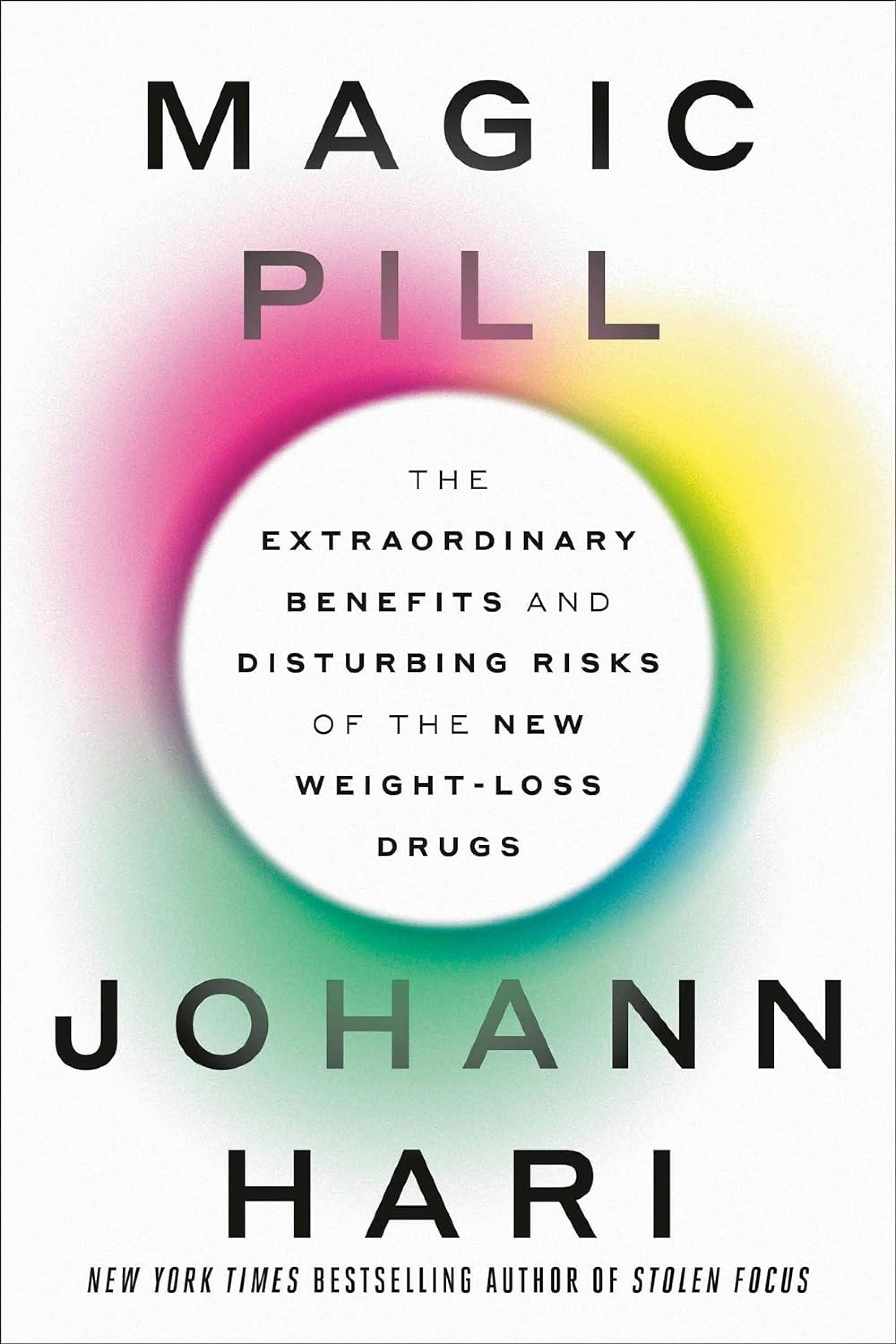
Weight-loss drug Ozempic is like magic but has risks, author Johann Hari says. Is it more dangerous than being obese?
- British writer Johann Hari quickly shed 19kg (42lb) on Ozempic, which fights obesity by stealing your appetite, but could come with serious health risks
- Thyroid cancer and kidney problems have been linked to the drug, but with a family history of heart disease, being obese is risky too. Hari’s mind is made up
Ask Johann Hari why he called his book about the new weight-loss drugs Magic Pill, and the British author and journalist offers an intriguing three-part answer.
First, he says the weight seemed to fall off as if by “magic”, and so swiftly; Hari lost 19kg (42lb) in less than a year, dropping from 92kg to 73kg.. Instead of consuming 3,200 calories daily, he was having less than 1,500.
It was, he says, “physically shocking” to lose so much weight so fast. The average weight loss for users is from 15 to 20 per cent of their body weight.

Second, he says, there was something disturbing in Ozempic’s power, as if, he explained, “you were witnessing a conjuror perform a trick and at the same time picking something from your pocket”.
Third, he says, taking Ozempic was rather like finding the genie’s lamp in Aladdin, rubbing it to make a wish, but then finding what transpired wasn’t quite what you wished for – or wasn’t quite what you expected.

How so? Because the magic – the benefits – come with risk.
Hari’s book Magic Pill is subtitled The Extraordinary Benefits and Disturbing Risks of the New Weight-Loss Drugs.
Essentially, Ozempic works by stealing your appetite and hastening your satiety, so you don’t enjoy eating nearly as much as you once did.
Could this loss of enjoyment in eating drive one of the unfavourable responses that have been associated with Ozempic – low mood or depression, he asks.
Loads of things about Ozempic worry me
If people comfort-ate their way out of loneliness, disappointment or anxiety and they now derive no pleasure from eating, could they have lost a crutch, he wonders.
The drugs, he says, “radically interrupt eating patterns, and that means they can bring to the surface deeper reasons why a person overate in the first place. It can be a difficult transition.”

He also suffered with a faster than normal heartbeat – a rare but recognised side effect of the weight-loss drug, which resolved itself as he began to develop a tolerance to it, as did the nausea and tiredness he suffered at the start.
While benefiting from Ozempic in his substantial weight loss, Hari is clearly conflicted about the drug’s pros and cons.
“Loads of things about Ozempic worry me,” he says.
There are concerns about its potential negative impacts on health.
We don’t know the long-term effects of these drugs. But we do know the long-term effects of obesity.
Novo Nordisk – Ozempic’s maker – warns of this potential, as well as the increased risks of pancreatitis, kidney problems and gastrointestinal issues.
Then there’s “Ozempic face” – a gaunt, hollowed, aged complexion, or “Ozempic butt”, which describes the deflated buttocks that come with substantial weight loss.
Of course, the appetite suppressing effects of Ozempic only last while you are taking it, Hari says. Most Ozempic users who quit regain two-thirds of their lost weight within a year.

One of Hari’s biggest worries about Ozempic is its as-yet unknown long-term effects. While it is already widely used, it has not been widely used for long.
Hari references the Fen-Phen story. Fen-Phen were a pair of weight loss or anti-obesity drugs described not as “magic” but as “a miracle”.
“Fen” is short for fenfluramine or dexfenfluramine, an appetite suppressant, and “phen” for phentermine, a type of amphetamine – a stimulant that speeds up messages travelling between the brain and body.
Could a similar scenario unfold with the new weight-loss drugs?
“We don’t know the long-term effects of these drugs,” says Hari, noting that even scientists cannot agree. “But we do know the long-term effects of obesity.”
Will Hari, then, continue to use the “magic pill”?
You have to weigh realistically the risks of taking it against the risks of being overweight, he says. Given his risk profile, he will opt for the drug over obesity.


